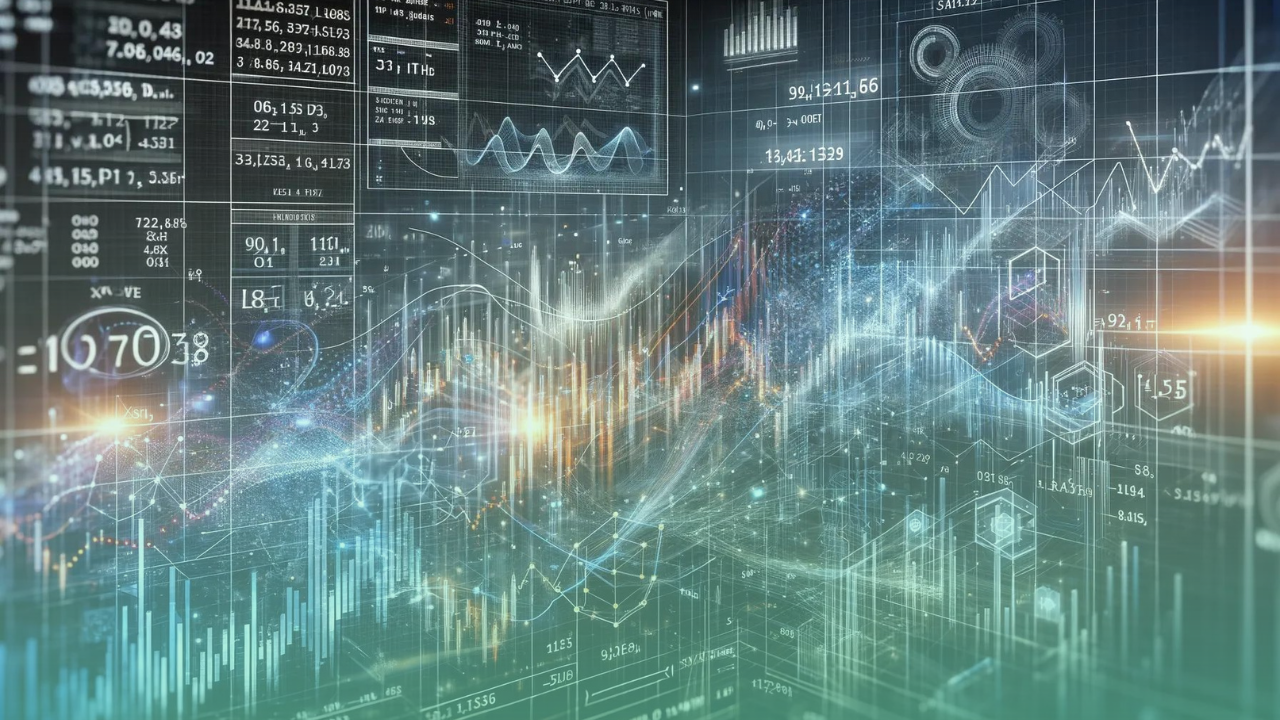Introduction
In the world of finance, algorithmic trading has become a buzzword, revolutionizing how trades are executed in the markets. It’s a method where computers are programmed to follow a defined set of instructions for placing trades to generate profits at a speed and frequency that is impossible for a human trader. This article aims to shed light on how algorithmic trading is impacting the dynamics of financial markets.
Understanding Algorithmic Trading
What is Algorithmic Trading?
Algorithmic trading, often known as ‘algo trading’, involves the use of complex algorithms to automate and execute trading actions at high speeds. These algorithms are designed based on quantitative parameters such as time, price, volume, and many other elements.
How Does it Work?
In simple terms, imagine setting up a program that buys stocks when they drop to a certain price and sells them as soon as they reach a higher price. Algorithmic trading works similarly but at a much more sophisticated level. It uses mathematical models and human oversight to determine the ideal entry and exit points for trades.
Types of Strategies
- High-Frequency Trading (HFT): This strategy uses powerful computers to transact a large number of orders at extremely high speeds.
- Arbitrage Opportunities: Buying a stock in one market at a lower price and simultaneously selling it in another market at a higher price to profit from the difference.
- Trend-Based Strategies: Following market trends based on historical and current data to make trading decisions.
The Benefits of Algorithmic Trading
- Increased Efficiency and Speed
Algorithmic trading is highly efficient, executing orders within fractions of a second, much faster than any human could.
- Improved Liquidity
By continuously placing orders, algorithmic trading systems provide markets with greater liquidity, making it easier for traders to buy and sell securities without causing significant price movements.
- Cost-Effectiveness
Automating trades reduces the costs associated with manual order placement and also minimizes the risks of human errors, making trading more cost-effective.
The Challenges and Risks of Algorithmic Trading
Market Volatility
One of the significant challenges posed by algorithmic trading is its impact on market volatility. While these systems can execute trades quickly and efficiently, they can also contribute to rapid and significant market fluctuations. For instance, if many algorithms simultaneously decide to sell a particular stock, it can lead to sudden and steep price drops, affecting investor confidence and overall market stability.
Systemic Risks
Algorithmic trading also brings systemic risks, where automated trading strategies could potentially lead to widespread market disruptions. A notable example is the ‘Flash Crash’ of 2010, where the Dow Jones Industrial Average plummeted and then rapidly recovered within minutes, largely attributed to high-frequency trading algorithms.
Fairness Debate
There’s a growing debate about the fairness of algorithmic trading. Firms with access to advanced technology and algorithms may have an advantage over smaller investors or those with less sophisticated tools, raising concerns about market equality and access.
Algorithmic Trading and Market Predictability
Impact on Market Trends
Algorithmic trading significantly influences market trends and patterns. By rapidly analyzing and reacting to market data, these algorithms can amplify or even create trends.
Predictive Analytics
The use of predictive analytics in algorithmic trading has become increasingly common. By analyzing historical data, these systems can forecast market movements, but this also raises questions about the predictability of markets driven by algorithms.
Predictability vs Randomness
The debate between predictability and randomness in markets intensified with algorithmic trading. While algorithms bring a level of predictability based on data analysis, their widespread use can also lead to unforeseen outcomes, adding an element of randomness.
The Effect on Traditional Trading Practices
Displacement of Human Traders
Evolving Roles and Responsibilities
- Strategic Decision-Making: As algorithms handle the repetitive and quantitative aspects of trading, human traders are shifting towards roles that require strategic decision-making, relying on their experience and intuition.
- Oversight and Management: Human traders are increasingly taking on roles that involve overseeing algorithmic systems, ensuring they function as intended, and adapting strategies in response to market changes that algorithms may not anticipate.
Collaboration Between Humans and Algorithms
- Complementary Strengths: The future of trading lies in the synergy between human judgment and algorithmic efficiency.
- Adapting to New Challenges: Human traders are adapting to work alongside algorithms, interpreting their outputs, and providing inputs that only human experience and understanding can offer.
Skillset Shift in the Financial Sector
New Educational Focus
- Rise in Quantitative Skills: There is an increasing demand for professionals with strong quantitative skills, such as data science, statistics, and computer programming, as these skills become critical in developing and managing algorithmic trading systems.
- Educational Programs Adjusting: Universities and training programs are adapting, offering more courses in financial technology, quantitative finance, and algorithmic trading to prepare the next generation of financial professionals.
Diverse Backgrounds in Finance
- Interdisciplinary Expertise: The financial sector is seeing a growing influx of professionals from diverse fields such as computer science, engineering, and mathematics, bringing different perspectives and skill sets to trading.
- Continuous Learning and Adaptation: Current finance professionals are finding it necessary to continually update their skills, often learning about data analysis, algorithm development, and even machine learning to stay relevant in the industry.
Balancing Traditional and Technological Skills
- Hybrid Skillsets: The most valued professionals in the future of trading might be those who can combine traditional financial knowledge with technical expertise, offering a comprehensive understanding of both market dynamics and algorithmic operations.
- Ongoing Professional Development: For those in the financial sector, ongoing education and professional development are becoming essential to keep pace with the rapidly evolving landscape of trading.
Conclusion
Algorithmic trading has revolutionized the financial markets by bringing unmatched efficiency, speed, and liquidity. It has opened up new opportunities for profit through strategies like high-frequency trading and arbitrage and made trading more accessible and cost-effective.
However, this technological advancement doesn’t come without its challenges. Market volatility, systemic risks, and the fairness debate highlight the need for a balanced approach to leveraging algorithmic trading. Predictive analytics and the ongoing debate between predictability and randomness in markets underline the complexities of foreseeing market movements in an algorithm-driven trading environment.
In conclusion, algorithmic trading presents a dynamic and evolving landscape, where the benefits of technology need to be weighed against potential risks and ethical considerations. For professionals in the financial sector, continuous learning and adaptation are essential to navigate this landscape successfully.
Interested in harnessing the power of algorithmic trading? YourRoboTrader is here to guide you through this rapidly evolving landscape. Our services offer cutting-edge algorithmic trading solutions that balance the efficiency of automation with the insight of market expertise. Whether you’re looking to understand the latest trends, develop bespoke trading algorithms, or enhance your trading strategies, YourRoboTrader is your partner in navigating the complexities of the financial markets.
Stay informed, adapt, and leverage the full potential of algorithmic trading with our expert guidance and advanced solutions. Contact us today to learn more and take a step towards transforming your trading journey.





